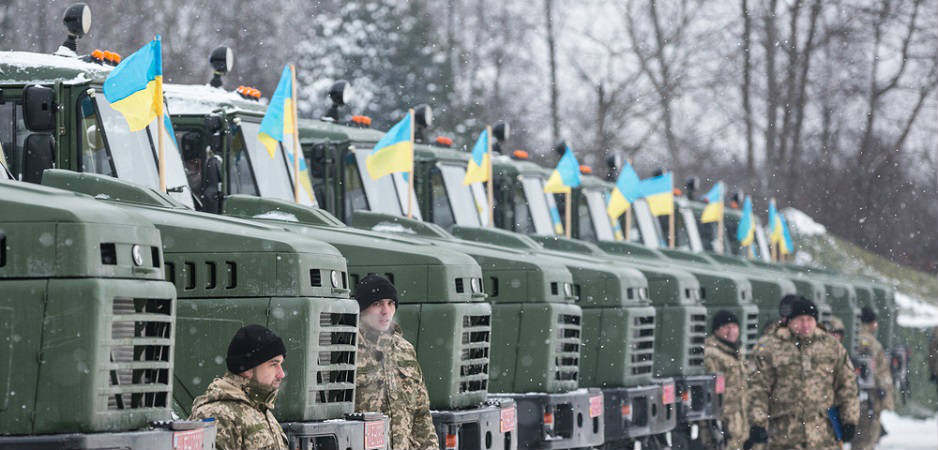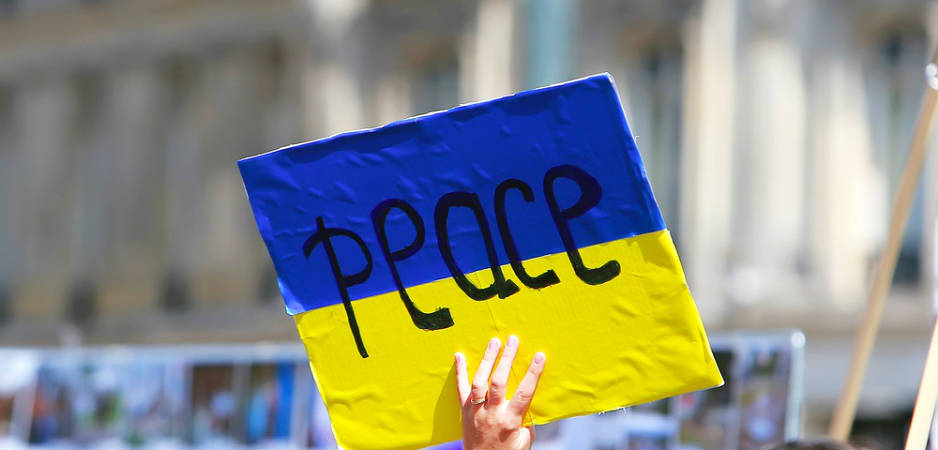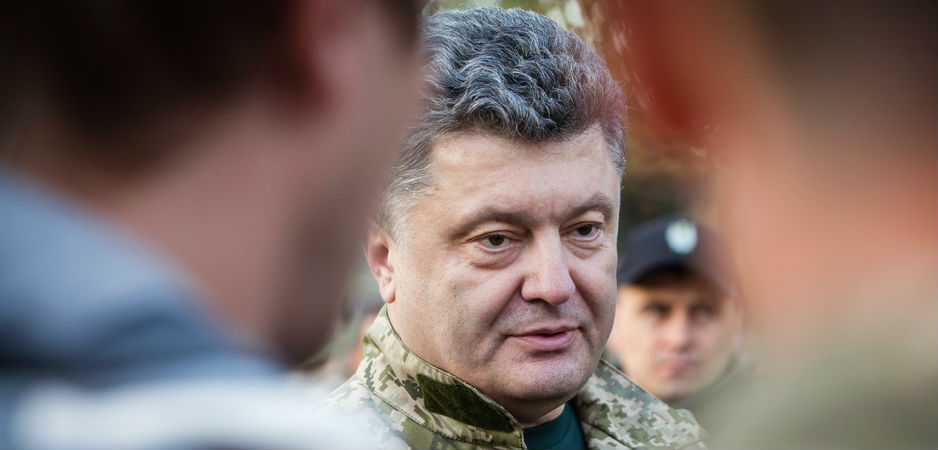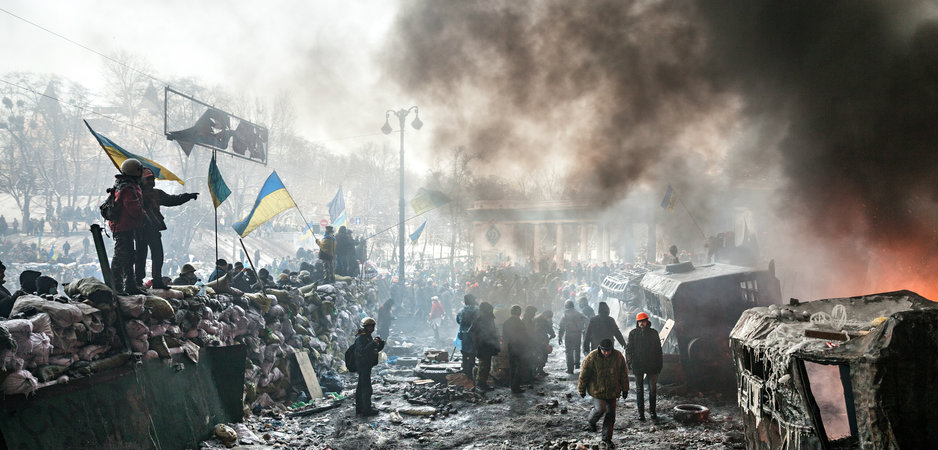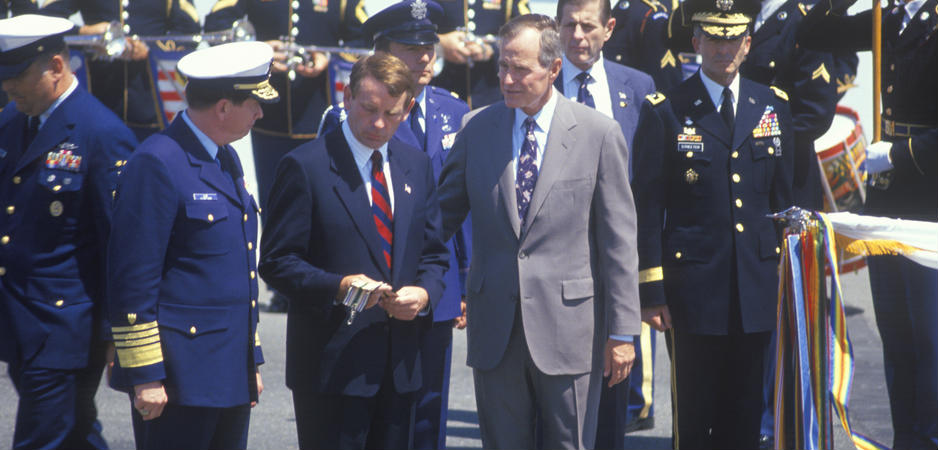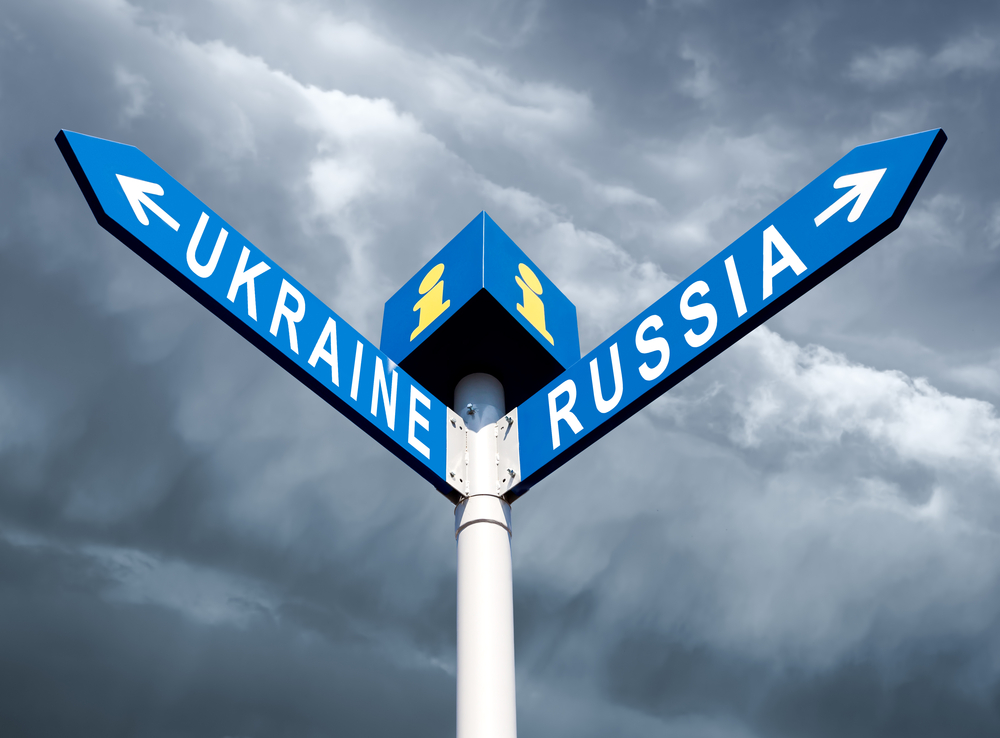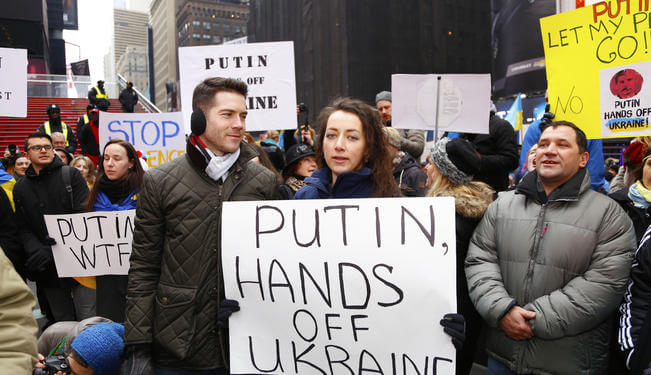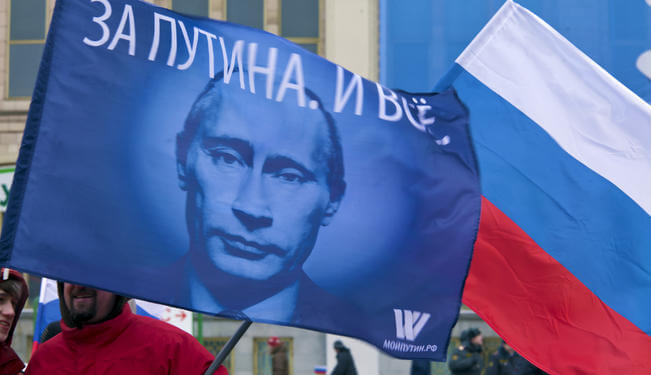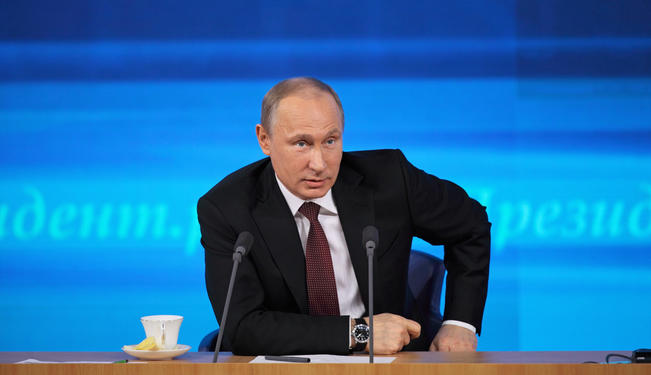Can the Ukrainian presidential candidate strike a balance between Russia and the EU?
With the shooting of Kharkiv Mayor Gennady Kernes and a fresh round of sanctions enforced on Russian officials, instability and violence continues to plague Ukraine’s future economic and security prospects. In the hope of true change, all eyes have turned to billionaire presidential candidate Petro Poroshenko to save the day. Currently leading in the polls with 48%, the “Chocolate King” — a nickname he obtained from his confectionary empire, Roshen — along with his reformist pro-Western stance, appears best placed to win the May 25 presidential election.
Poroshenko has certainly proven himself committed to change in Ukraine, with many going as far as to label him “the CEO of the revolution.” But before we hail him as the leader of the new Ukraine, we need to ask ourselves: Who is Poroshenko and is he fit to lead crisis-ridden Ukraine out of Russia’s grip?
A Self-Made Man
Born near Odessa, in Southwest Ukraine, Poroshenko started his career as one of the country’s very first business consultants after completing his degree in economics. When the hectic 1990s came around, Poroshenko was able to get his hands on several state-owned confectionary companies, which he then transformed into his very own chocolate empire, dubbing him Ukraine’s Willy Wonka. Apart from his lucrative chocolate empire, he owns the Ukrainian Channel 5 opposition media station, several car plants and a shipyard, amassing a total net worth of $1.3 billion, making him the seventh richest man in Ukraine.
Besides his many business dealings and oligarch status, Poroshenko is no newbie to the political sphere. Having held multiple governmental positions, he has always appeared unable to associate with just one political party, which, according to journalist Andriy Skumin, is the norm for members of the modern Ukrainian “party in power,” where “ideology is secondary; power always comes first.”
Power Over Ideology?
When first elected to public office in 1998 as a representative to the Verkhovna Rada, the Ukrainian parliament, Poroshenko joined the Social Democratic Party. Soon after, in 2000, he formed his own “Party of Solidarity of Ukraine.” This romance was short-lived as he went on to cofound the Party of Regions — yes, the party of ousted President Viktor Yanukovych.
In 2002, Poroshenko ditched the Party of Regions, this time for the “Our Ukraine” party of Viktor Yushchenko. After the latter became president, Poroshenko served as the head of the National Security and Defense Council, and then as foreign minister in Yulia Tymoshenko’s government from 2009 to 2010.
Poroshenko is far from naïve, and he would be wise to tread carefully around the grizzly bear, knowing that a strained relationship with the Kremlin will likely lead to a sour situation not just for his business, but also many others with close ties to Russia.
Despite his strong criticisms of Yanukovych, Poroshenko accepted his offer to serve as trade and economic development minister in 2012. His constantly shifting support gives weight to the theory that in post-Soviet Ukrainian politics, ideology and platform appear to matter a lot less than power. Poroshenko is currently not affiliated with any political movement, and his former Orange Revolution partner, Tymoshenko of the Fatherland Party, is now his bitter enemy and rival candidate.
The Ultimate Triad
One of the central elements of Poroshenko’s campaign has been a promise to lead Ukraine down the path of modernization, undergo painful but necessary reforms (including an end to state gas subsidies), and finally guide the country to economic stability. Well aware that International Monetary Fund (IMF) reforms and conditionality will be largely unpopular with the population, he has promised that Ukraine’s rich will be the ones footing most of the bill, not the poor. Whether these promises become a reality if he is elected remains to be seen, considering his close ties with controversial oligarchs such as Dmytro Firtash — a gas middleman involved in a fair share of dodgy dealings.
This brings us to his next main issue: the grave problem of Ukraine’s endemic corruption. The Maidan protests were sparked largely as a result of Ukrainian citizens’ anger with the greedy and corrupt elite, blamed for failing to provide the country with prosperity and jobs. Given his status as one of Ukraine’s wealthiest men, Poroshenko certainly appears to be in a good position to keep the oligarchs in check and tackle corruption. At the same time, it remains to be seen how he will balance this agenda with the protection of his own business interests, both in Russia and Europe.
Despite advocating a pro-West stance and the need to sign the original European Union (EU) association agreement thrown in the bin by Yanukovych, Poroshenko has been hesitant to fully distance himself from the Kremlin, openly declaring that “without dialogue with Russia, it will be impossible to create security.” Poroshenko also has an interest in ensuring that Ukrainian goods will continue to enjoy a place on the Russian market. It seems implausible that the Chocolate King, even with all his financial stability, will be able to avoid paying lip service to Russian President Vladimir Putin. After all, 40% of his business takes place in Russia and last year’s ban on his chocolate goods, most likely politically motivated, has dealt quite a blow to his business.
Poroshenko is far from naïve, and he would be wise to tread carefully around the grizzly bear, knowing that a strained relationship with the Kremlin will likely lead to a sour situation not just for his business, but also many others with close ties to Russia. A wrong move on his part might end up hurting the Ukrainian economy rather than repairing it.
Walk the Walk, Don’t Talk the Talk
While it is true that the Chocolate King has positioned himself at the forefront of Ukraine’s battle with corruption, his own close relationship with billionaire gas tycoon Firtash certainly raises serious questions about his commitment to the cause. Firtash made his billions as a natural gas trader through his joint venture RosUrkEnergo (RUE) with Gazprom, which has also been closely linked to FBI-wanted mobster Semion Mogilevich. Firtash himself has failed to deny his links with organized crime, claiming that without it he could not have built his empire.
Firtash, who is said to be worth anywhere between $500 million to $10 billion, has been the subject of a more recent scandal and “victim” to the crackdown on Russian and Ukrainian oligarchs. A known Yanukovych supporter, Firtash fled to Vienna after the former president’s ouster, where he is currently facing extradition to the United States on charges of corruption. Despite trying to distance himself from Firtash and his kind in order to ensure that his anticorruption campaign remains legitimate, it did not take long for news to surface that both Vitali Klitschko and Poroshenko paid a visit to Firtash in Vienna, sparking rumors that Poroshenko may be trying to save the latter from extradition.
This upward chain of questionable links surrounding Poroshenko’s relationship with Firtash hardly bodes well for his reformist reputation.
Ukraine’s Chocolate King certainly has a strong support base in the country and his campaign has won over the many Ukrainian citizens who are fed up with the old elite regime. In a show of unity, Klitschko, the heavyweight boxing champion, withdrew his candidacy to throw his full support behind Poroshenko. But current support does not imply Poroshenko can or will pursue the agenda he is so strongly advocating for, and chances are his oligarchic ties, business interests and Moscow calculations will hamper his ability to lead as a reformer.
What is certain is that Ukraine needs to find a middle ground between Russia and the EU, before it gets torn apart from the outside and from within. Will Poroshenko manage to guarantee the country’s solidarity and its strategic positioning in Europe? After all, it’s much more simple to talk the talk than it is to walk the walk.
*[This article was originally published by Foreign Policy Journal.]
The views expressed in this article are the author’s own and do not necessarily reflect Fair Observer’s editorial policy.
For more than 10 years, Fair Observer has been free, fair and independent. No billionaire owns us, no advertisers control us. We are a reader-supported nonprofit. Unlike many other publications, we keep our content free for readers regardless of where they live or whether they can afford to pay. We have no paywalls and no ads.
In the post-truth era of fake news, echo chambers and filter bubbles, we publish a plurality of perspectives from around the world. Anyone can publish with us, but everyone goes through a rigorous editorial process. So, you get fact-checked, well-reasoned content instead of noise.
We publish 2,500+ voices from 90+ countries. We also conduct education and training programs
on subjects ranging from digital media and journalism to writing and critical thinking. This
doesn’t come cheap. Servers, editors, trainers and web developers cost
money.
Please consider supporting us on a regular basis as a recurring donor or a
sustaining member.
Support Fair Observer
We rely on your support for our independence, diversity and quality.
Will you support FO’s journalism?
We rely on your support for our independence, diversity and quality.





